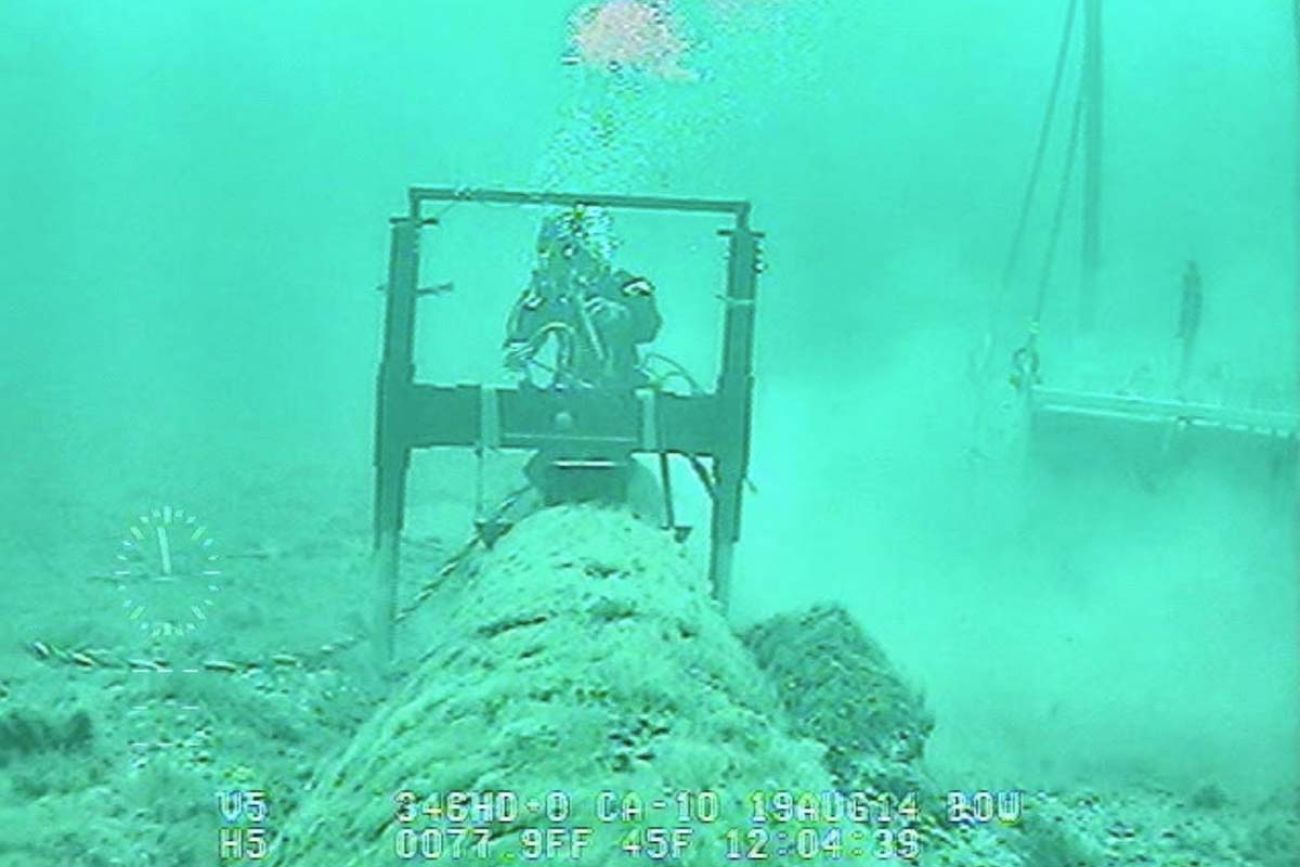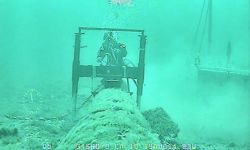Trump administration to fast-track Line 5 tunnel, calling project 'emergency'

- The Trump administration will expedite the Line 5 tunnel permit decision after deeming the project an ‘emergency,’ it announced Wednesday
- The decision builds upon Trump’s vow to ‘unleash’ American oil and gas, but Line 5’s products come from Canada
- Oil industry officials cheered the decision, while environmentalists jeered
The Trump administration on Wednesday announced a decision to fast-track permitting for the Line 5 tunnel project, relying on a federal “emergency” designation normally reserved for dramatic events like dam breaks and oil spills.
A notice posted to the US Army Corps of Engineers Detroit District website on Tuesday states that the project is now subject to “special emergency processing procedures” in accordance with President Donald Trump’s Jan. 20 executive order declaring a national energy emergency.
The Corps is midway through a yearslong review of the project’s environmental impacts. That process was expected to culminate early next year in a decision about whether to let Enbridge fill wetlands and dredge or build in the water as part of the tunnel project.
It was not immediately clear how much that process will speed up now that the tunnel project has emergency status. The agency still plans to publish a draft environmental review in June and solicit public comment before making a final decision. Corps spokesperson Carrie Fox said agency officials are “working to establish an updated timeline.”
Federal regulations allow quick Corps approval of projects needed to avoid an “energy supply situation which would result in an unacceptable hazard to life, a significant loss of property, or an immediate, unforeseen, and significant economic hardship.”
That process has normally been used to respond to sudden disasters. But Trump, a climate denier whose campaign was heavily funded by the fossil fuel industry, has directed federal agencies to dramatically expand its use as he looks to “unleash” American oil and gas.
Related:
- Army Corps eyes Line 5 tunnel for ‘emergency’ designation; foes sound alarms
- Seven tribes in Michigan withdraw from federal talks over Line 5 tunnel permit
- What a Donald Trump presidency means for Michigan’s environment
- 10 years later, Kalamazoo River spill still colors Enbridge pipeline debate
Hours after taking office on Jan. 20, he declared a national energy emergency and gave the Corps 30 days to “identify planned or potential actions to facilitate the Nation’s energy supply that may be subject to emergency treatment.”
The 72-year-old Line 5 pipeline transmits Canadian crude oil and natural gas liquids that mostly return to Canada after passing through Wisconsin and Michigan, but some is used to supply propane in the Upper Peninsula and fuel used in Detroit and Toledo refineries.
The Corps’ decision drew cheers from oil industry and labor groups, and ire from environmentalists who argue the real risk to Americans is from the pipeline itself.
"Building a tunnel under the Great Lakes to house an outdated and dangerous pipeline is risky. Expediting that process is reckless," said Beth Wallace, climate and energy director for the National Wildlife Federation. "The permitting processes exist for a reason. We cannot afford to bypass safety in order to line the pockets of a foreign oil company."
‘Critical infrastructure’
The pipeline’s fate has been a deeply contentious topic in Michigan for more than a decade, ever since a catastrophic oil spill on another Enbridge-owned pipeline in Kalamazoo raised public awareness about the aging Line 5, which crosses the Straits of Mackinac in the open water and has been repeatedly struck by ships’ anchors.
Amid fears that Line 5 could rupture and pollute the Great Lakes, then-Gov. Rick Snyder’s administration struck a deal with Enbridge days before Snyder left office, in which Enbridge agreed to encase the pipeline in a tunnel deep beneath the lakebed.
Company spokesperson Ryan Duffy called the pipeline “critical energy infrastructure” and said the tunnel project is “designed to make a safe pipeline safer.”
“Enbridge applied for permits to build the Tunnel years ago, so we’re excited to see signs of movement from the regulators who’ve been reviewing the project,” Derek Dalling, executive director of the Michigan Propane Gas Association, said in a statement Wednesday. “We’re confident (the) Corps will do the right thing and green light this critical energy infrastructure project.”
Environmentalists oppose that plan, arguing it’s unwise to build new fossil fuel infrastructure given that society has mere years to rapidly decarbonize to avoid key climate change “tipping points.”
In addition to the federal permits, Enbridge has applied for renewal of previously issued permits for the tunnel project from the Michigan Department of Environment, Great Lakes and Energy. It has also secured a key permit from the Michigan Public Service Commission, but an environmental group and four Michigan Native American tribes are seeking approval to appeal that decision with the Michigan Supreme Court.
Enbridge is also fighting a court battle against Attorney General Dana Nessel, who wants the pipeline shut down.
Company officials originally estimated that the tunnel project would be complete by 2024 at a cost of $500 million, but rising costs and permitting delays have plagued the project, which now likely won’t be complete until 2029 or later, at a cost well in excess of $1 billion.
Michigan Environment Watch
Michigan Environment Watch examines how public policy, industry, and other factors interact with the state’s trove of natural resources.
- See full coverage
- Subscribe
- Share tips and questions with Bridge environment reporter Kelly House
Michigan Environment Watch is made possible by generous financial support from:
Our generous Environment Watch underwriters encourage Bridge Michigan readers to also support civic journalism by becoming Bridge members. Please consider joining today.
See what new members are saying about why they donated to Bridge Michigan:
- “In order for this information to be accurate and unbiased it must be underwritten by its readers, not by special interests.” - Larry S.
- “Not many other media sources report on the topics Bridge does.” - Susan B.
- “Your journalism is outstanding and rare these days.” - Mark S.
If you want to ensure the future of nonpartisan, nonprofit Michigan journalism, please become a member today. You, too, will be asked why you donated and maybe we'll feature your quote next time!






